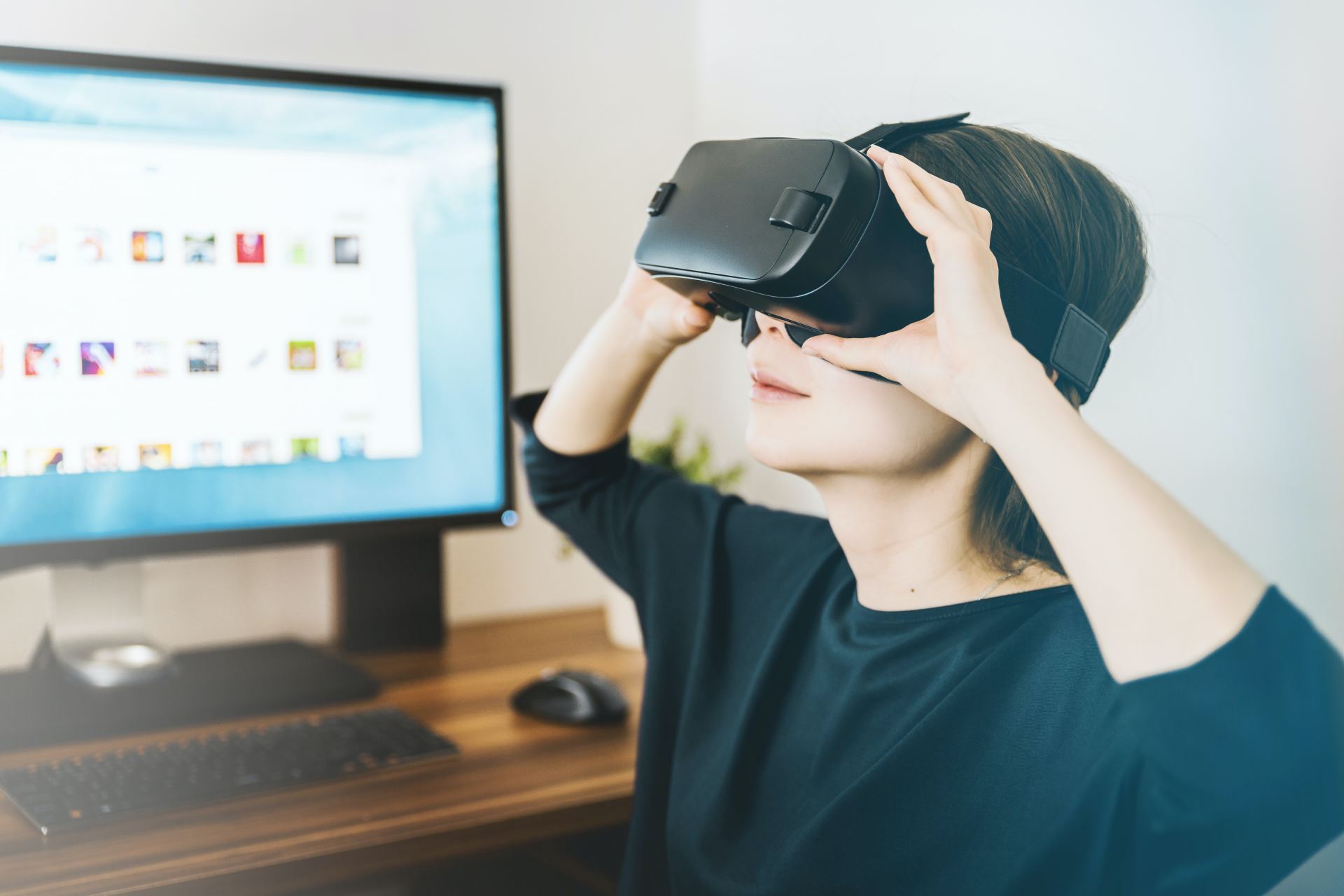Virtual reality has the potential to help improve many aspects of our lives, and not just in entertainment. Researchers are investigating some of the challenges this presents.
You can climb Mount Everest, see Vincent van Gogh’s work in a new light or, if you prefer, battle zombies wielding chainsaws. All from the comfort of your sofa.
Virtual Reality (VR) which involves delivering immersive moving images and sound via a head-mounted display, dates back to the 1960s. The military were early adopters, using it for simulations and training. It has also been used to treat conditions including phobias, anxiety, post-traumatic stress disorder and pain since at least the 1990s. Despite this, VR was long seen as constantly lagging behind predictions of its power to transform many aspects of our lives for the better.
The technology has, however, come a long way. Only now, decades after VR was first developed, are we truly starting to appreciate the wide range of uses to which it can be applied.
Whilst MyWorld’s focus is on entertainment and creative media, the programme’s research and development will push the boundaries of VR exploring other applications, including healthcare, education, and remote working.
Virtual healthcare
VR and mixed reality (MR) tools are already being used in a variety of ways in healthcare, but many applications are still in their infancy.
FundamentalVR is a great example of a VR platform that allows surgeons to learn new skills and practice operations, there are also VR platforms that facilitate virtual ward rounds and help doctors better understand their patients with conditions like dementia and Parkinson’s disease.
The Waiting Room: VR commissioned by the Virtual Realities Immersive Documentaries Encounters project was a collaboration between the University of Bath, the University of Bristol, the University of the West of England and the Watershed, that tells the story of a breast cancer patient, through diagnosis, treatment, to recovery. Exploring chronic illness from a patient’s point of view is a very personal journey but as cancer is likely to affect one in two of us over the course of a lifetime, it also tells a very universal story.
Not only can VR help with patient understanding, but recent research published by psychologists at the University of Bath found VR could also help improve movement in children with cerebral palsy, stroke sufferers and people with acquired brain injury.
Virtual conferences
With many international events being forced to cancel due to Covid-19, online video conferencing provided the possibility for these events to resume. We were, however, still faced with the difficulty of replicating the benefit of meeting and networking face-to-face.
VR could be the answer. For example, in March 2020, Covid-19 forced Taiwanese consumer electronics group HTC to cancel a major developer conference for its Vive VR headset system due to be held in Shenzhen, China. Instead, more than 1,000 people used a VR platform called ENGAGE to attend a virtual version of the meeting as avatars that could interact with each other.
Virtually misinformed
While VR and MR clearly offer a wide range of potential benefits and opportunities, they, like many other transformative technologies, also present challenges.
One consequence of the increasingly digital nature of human experiences highlighted by Covid-19 is our vulnerability to fake news. The World Health Organization described the torrent of information, including misinformation, that accompanied the pandemic as a “massive infodemic”, and set up teams to track and counter myths, false rumours and fake news.
The ability to collect, use and abuse new forms of personal data to create very realistic avatars that mimic people’s facial expressions and body movements through body motion capture will only amplify fake news.
Psychologist Professor Danaë Stanton Fraser from the University of Bath, and colleagues at the CREATE lab, are studying whether people are more vulnerable to misinformation provided by realistic avatars, versus stylised ones or in text form. For example, what would happen if someone intent on spreading fake news about Covid-19 had done so in VR environments in the digital guise of Sir Chris Whitty, England’s Chief Medical Officer?
MyWorld’s research
Despite the many challenges we face with the mass adoption of VR and MR, such as new data security and privacy issues, MyWorld’s research will investigate and develop new ways to deliver immersive experiences, as well as toolkits to evaluate them. Researchers leading the initiative are exploring synchrony, immersion and engagement in VR, however, they are also aware of the problems associated with the technology and are leading research to better understand and fix them.
by Nic Fleming
